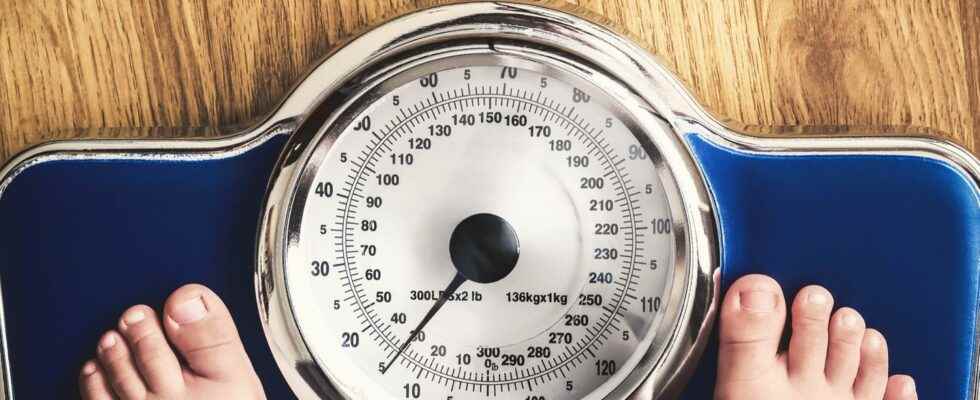words have power
Here’s how you should talk to your child about excess weight
© Shutterstock/ winnond
Fat shaming is only on Instagram? Not correct. In families too, excess weight can lead to constant pressure and lifelong eating disorders.
All parents want their children to have a relaxed relationship with their bodies – and at the same time live a healthy life.
But how do you achieve that? In a world where there is an ice cream parlor or a fast food restaurant on every corner? In a world plastered with advertising images of skinny people? In a world that constantly signals that beauty is closely related to success and popularity?
Many parents fear that their child will lose itself in this area of tension and could develop eating disorders – after all, they are on the rise in our society. On average, about 28 out of 1,000 girls and women will develop binge eating disorder, 19 bullimia and 14 anorexia in their lifetime. According to the Federal Center for Health Education, 10 out of every 1,000 boys suffer from a binge eating disorder, 6 from bulimia and 2 from anorexia.
The fear of pounds is passed on to the child
At the same time, the parents themselves can hardly escape the obsession with being thin in our society:Not only “Germany’s next top model” threatens the body image of girls – often it is their own mothers. You may have a disturbed relationship with food and pass this on to your own child.
“I always wanted to avoid having fat children”, said the 65-year-old (very slim) mother of a colleague. She was too afraid that her children would never lose these pounds and that they would suffer from the extra weight for the rest of their lives. She was accordingly strict about her children’s meals – and critically commented on every little roll of bacon.
The originally well-intentioned body drill backfired: your daughter admits today that she suffered from it, especially during puberty, and constantly walked around with a guilty conscience. Even today, she does not step on the scales in a relaxed manner.
Fat shaming in your own four walls
Even if not everyone says it as openly as the mother mentioned, in many families it is the mothers who critically examine their children’s bodies and put them under pressure. But fathers are also exempt from this – they can just as strictly track every bite that migrates into the child’s body.
“Fat-shaming is a big topic on social networks, but it happened to me in my own four walls, at home with my family. And it infected my whole childhood,” writes Donna Freydkin in her text Refinery29.
The result of such pressure can be that the children secretly eat unhealthy things and hate the body. A lifelong frustration is inevitable.
Teach healthy eating – without pressure
But how do you manage to guide the children well through the phase of physical insecurity and at the same time teach them to eat healthily and in moderation?
These tips from nutrition and parenting experts can help you:
- Accept yourself! How are you supposed to learn to accept and love your own body when your mother is constantly nagging at her body? When she doesn’t dare to go swimming in a bikini because she’s said to be too fat? When she herself is unhappy at the dining table because she has once again forbidden herself any pleasure? We are our children’s most important role models, so we have to start with ourselves and model how to be relaxed with our own bodies.
- Watch your language! Part of setting an example is not using typical fat-shaming vocabulary. Don’t talk about your belly, don’t call your child “moppelchen”. And above all, don’t talk about third parties and their bodies in a derogatory way. If you make fun of an overweight woman on the street to your kids, you’re giving your kids the idea that more weight might mean less acceptance.
- Focus on health, not appearance. Why are we eating? Because it’s fun – but also so that our body runs smoothly and so that we feel good. That should be the focus when you educate children about nutrition. Too much sugar isn’t bad because it makes you fat but because it makes you sick. You go jogging in the morning because it’s good for you – not to finally fit into the miniskirt again.
These three tips show that it is often just the nuances that make the difference, but this difference can have very long-term consequences for the children. The good news is that it’s in your hands – and it will do your self-esteem good in the end.

